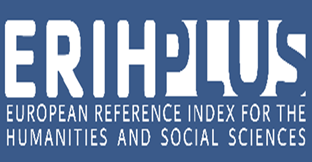Communicative and pragmatic features of the speech act of benevolence in the Tatar communicative culture
Views: 202 / PDF downloads: 128
DOI:
https://doi.org/10.32523/2664-5157-2021-2-75-83Keywords:
ethno-cultural stereotype, speech culture, Tatar ethno-culture, speech act, benevolenceAbstract
The purpose of this article is to study the communicative and pragmatic features of the
speech act of benevolence in the Tatar communicative culture. The relevance of the research is because
the study of the speech act of the Tatar people’s wishes allows us to rethink the communicative culture in
the context of globalization and the dialogue of cultures, to identify the communicative and pragmatic
features of the speech behavior of the Tatars. The author considers the conceptual theoretical basis of
well wishing within the framework of the pragmatic theory of the speech act, when the illocutionary
connection between the speaker and the addressee is determined by the established norms and
traditions of a particular ethnic group. The article classifies the communicative-situational groups
of speech expressions of benevolence as everyday and solemn, reveals their various communicative situations, which are illustrated by the variety of Tatar speech cliches, phraseological units and
paroemias. Stable expressions of good wishes in the Tatar culture express sympathy, attention, and
good relations to the interlocutor, thus they are based on the generally accepted rules of behavior and
the traditional culture of the ethnic group. The ethno-cultural stereotypes of the Tatars communicative
behavior are closely related to their mental and cultural values. The article also emphasizes that the
main motives of benevolence in the Tatar speech act are the wish for health, material prosperity, good
luck and kindness.
The analysis of the speech formulas of benevolence in the system of Tatar communicative culture
leads to the conclusion that the Tatars remain faithful and constant in observing folk customs and
traditions.
Downloads
Reference
Abdullin A.A. Eticheskie vyrazheniya v sovremennom tatarskom literaturnom yazyke: avtoref. dis. ... kand. filol. nauk [Ethical expressions in the modern Tatar Literary Language: autoref.dis. Candidate of Philology]. Kazan, 2006. 25 p. [in Russian].
Vdovina E.V. Pozdravlenie i pozhelanie v rechevom etikete: konceptual’nyj i kommunikativnyj analiz: avtoref. kand. filol. nauk [Congratulations and wishes in speech etiquette: conceptual and communicative analysis: autoref.dis. Candidate of Philology]. Moscow, 2007. 24 p. [in Russian].
Ganiev F.A. Russko-tatarskij slovar’. Izd. 3-e, ispr [Russian-Tatar dictionary. 3rd ed., re.]. Kazan, Tatar. kn. izd-vo, 2009. 240 p. [in Russian].
Zakirova I.G. Zhanr blagopozhelanij v tatarskom fol’klore // Filologicheskie nauki. Voprosy teorii i praktiki [«The genre of benevolence in Tatar folklore» Philological sciences. Questions of theory and practice]. Tambov, Gramota, 2017. No10. Vol.3. P. 15-18.
Isanbat Nakyj. Tatar halyk makal’lare: makal’lar zhyelmasy: 3 tomda. 1 tom: «Makal’larebez turynda» digan fanni hezmat һam anlatmalar belan [Tatar folk proverbs: a collection of proverbs: 3rd ed. 1 issue: Scientific work «on proverbs and sayings» with comments]. Kazan, 2010. 1 tom. 623 p.; 2 tom. 749 p.; 3 tom. 799 p. [in Tatar].
Isina G.I. Stereotipy i nacional’naya yazykovaya kartina mira: avtoreferat dissertacii na soiskanie uchenoj stepeni doktora filologicheskih nauk [Stereotypes and the national language picture of the world: abstract of the dissertation for the degree of Doctor of Philology]. Almaty, 2008. 55 p. [in Russian].
Kuznecov A.V. Verbal’nye sredstva etiketnogo obshcheniya v chuvashskom yazyke: opyt komparativnogo, kontrastivnogo i etnolingvokul’turologicheskogo izucheniya: avtoreferat dissertacii na soiskanie uchenoj stepeni kandidata filologicheskih nauk [Verbal means of etiquette communication in the Chuvash language: the experience of comparative, contrastive and ethno-linguoculturological study: abstract of the dissertation for the degree of Candidate of Philological Sciences]. Cheboksary, 2004. 25 p. [in Russian].
Safiullina F.S. Tatarcha-ruscha frazeologik sүzlek [Tatar-Russian Phraseological Dictionary.]. Kazan, Magarif, 2001. 335 p. [in Tatar].
Tatar telenen anlatmaly suzlege. I tom: A-V [Explanatory dictionary of the Tatar language. Volume I: A-B.]. Kazan, TAһSI, 2015. 712 p. [in Tatar].
Tatar telenen yazma korpusy. [Elektronnyj resurs] [Written corpus of the Tatar language [Electronic resource]]. – URL: http://www.corpus.tatar/tt [Data obrashcheniya: 20.04.2021]. [Accessed: 20.04.2021]. [in Tatar].
Trofimova N.A. Ekspressivnye rechevye akty v dialogicheskom diskurse. Semanticheskij, pragmaticheskij. Grammaticheskij analiz [Expressive speech acts in dialogic discourse. Semantic, pragmatic. Grammatical analysis]. Saint Petersburg, Izd-vo VVM, 2008. 376 p. [in Russian].
Formanovskaya N.I. Rechevoj etiket i kul’tura obshcheniya [Speech etiquette and communication culture]. Moscow, Vyssh. shk., 1989. 156 p. [in Russian].
Yusupova A.Sh., Nabiullina G.A., Galimova G.N. Rechevye stereotipy v yazykovom etikete tatarskoj i tureckoj etnokul’tur [Speech stereotypes in the language etiquette of the Tatar and Turkish ethnic cultures]. In: Vestnik Chuvashskogo gosudarstvennogo pedagogicheskogo universiteta im. I.Ya. Yakovleva [Bulletin of the I.Ya. Yakovlev Chuvash State Pedagogical University.]. 2018. No 4. (100), P. 328-336. [in Russian].
Mugtasimova G.R., Nabiullina G.A., Denmukhametova E.N. Paremiological fund of the Tatar people in the ethno-linguistic aspect. In.: Life Science Journal, 2014. vol. 11, iss. 11, P. 409-412.
Wierzbicka A. Semantics, culture and cognition: Universal human concepts in culture-specific configurations. New York, Oxford University Press, 1992. 469 p.
Downloads
Published
How to Cite
Issue
Section
License
Copyright (c) 2021 Turkic Studies Journals

This work is licensed under a Creative Commons Attribution-NonCommercial 4.0 International License.
























